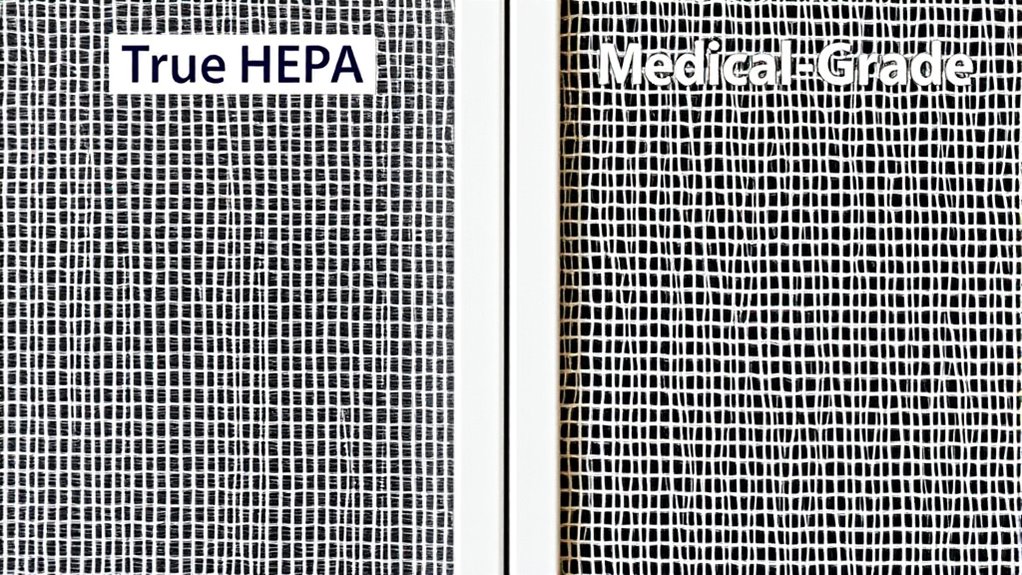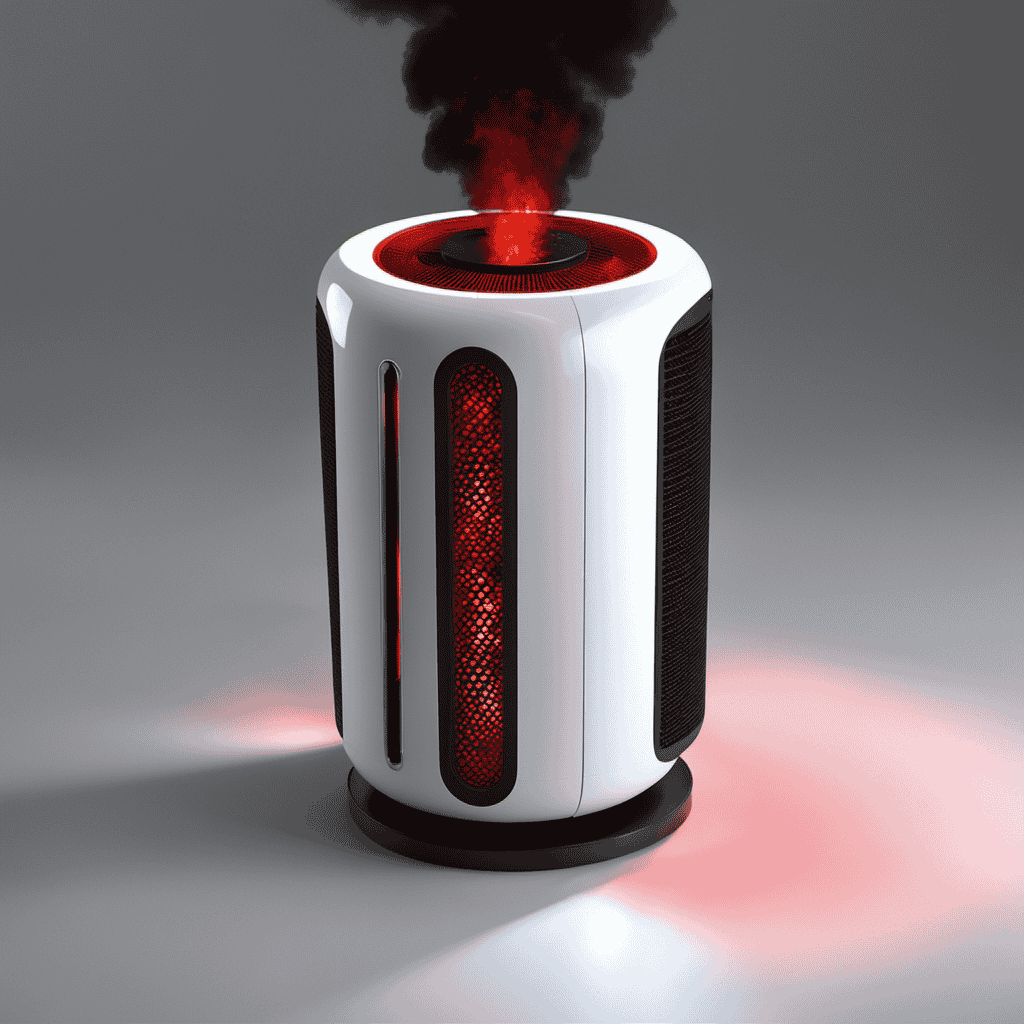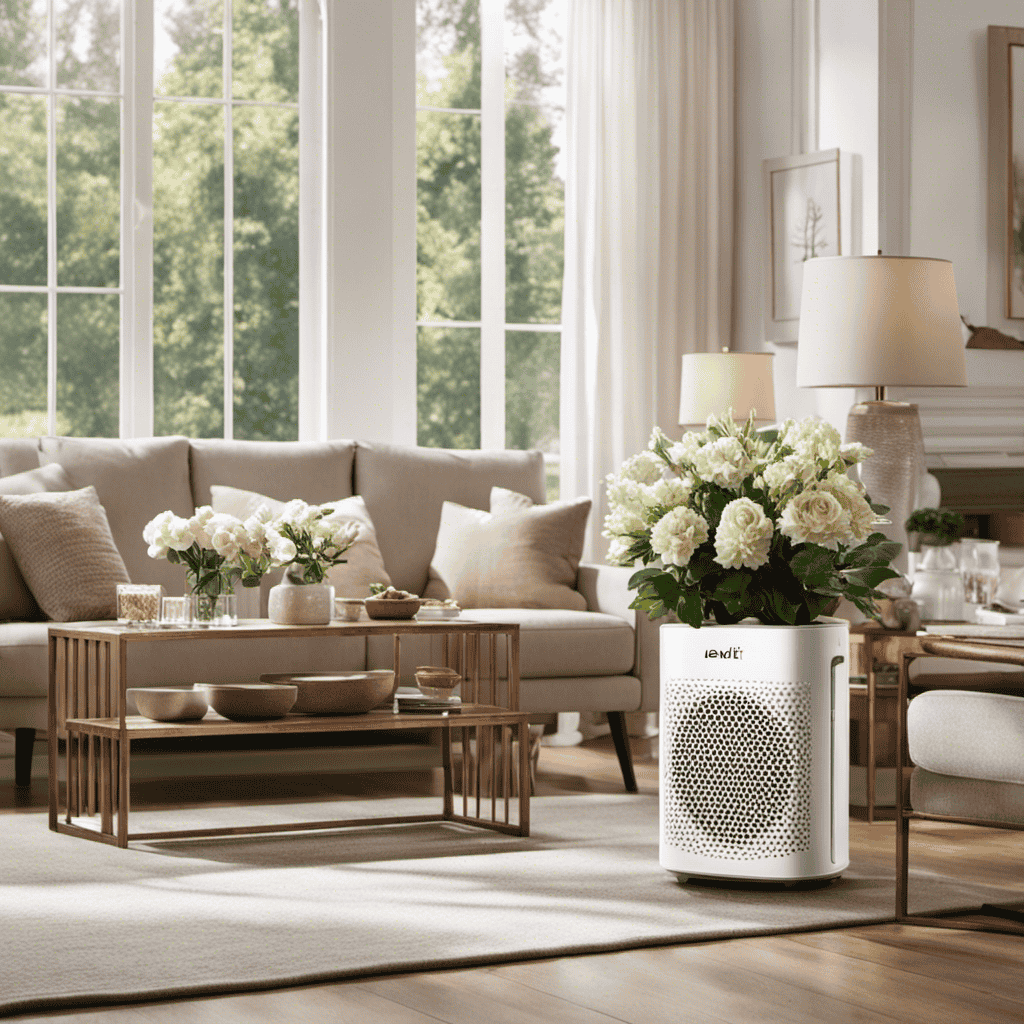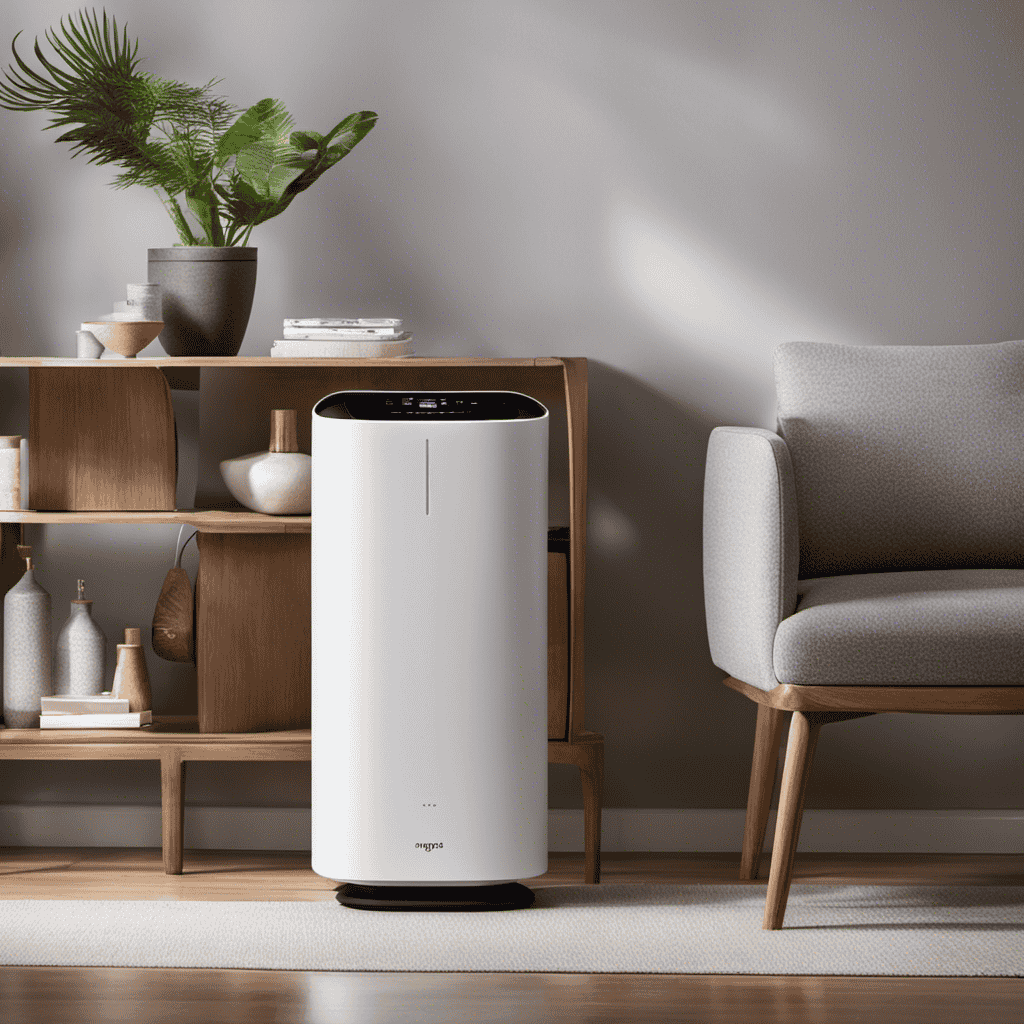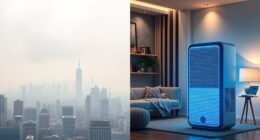When comparing true HEPA filters to so-called “medical-grade” options, know that “medical-grade” is mainly a marketing term with no strict standards. True HEPA filters are tested and certified to capture at least 99.97% of tiny particles like allergens and dust, making them reliable for improving air quality. Many “medical-grade” claims are unverified, so to truly understand what you’re getting, focus on documented performance details. Keep going to discover how to make smarter air filtration choices.
Key Takeaways
- True HEPA filters meet strict standards capturing 99.97% of 0.3-micron particles; “medical-grade” is a marketing term, not a regulated standard.
- Many “medical-grade” filters use the same HEPA technology as True HEPA filters; performance should be verified through data, not labels.
- Certification standards like EN 1822 ensure filter quality; “medical-grade” labels often lack such verified standards.
- True HEPA filters are reliable for allergens and dust; “medical-grade” claims often exaggerate or lack meaningful performance differences.
- Focus on documented performance and standards compliance rather than marketing terms for an informed air filtration choice.
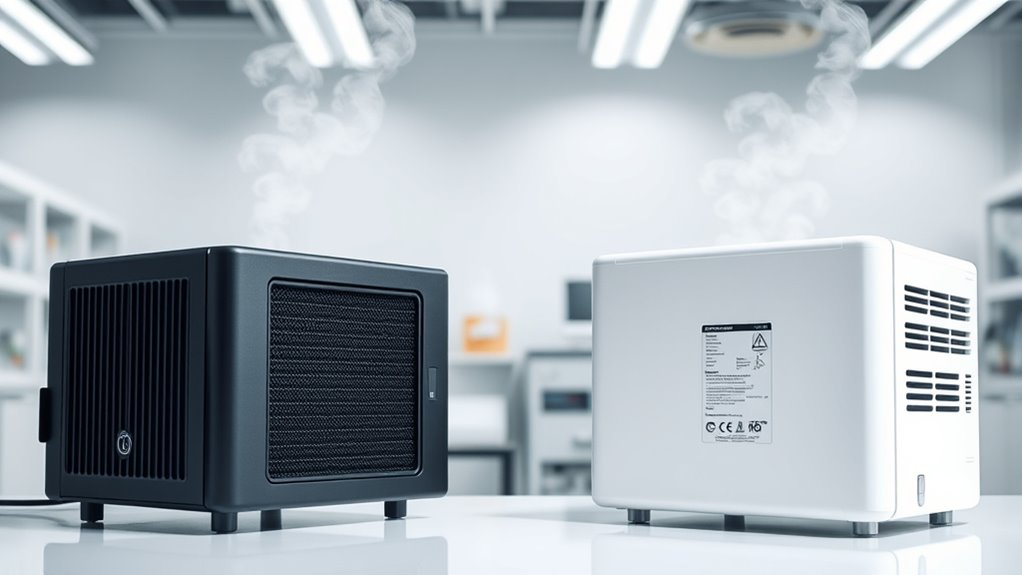
When choosing an air purifier, understanding the difference between True HEPA and medical-grade filters is vital. Many people assume that medical-grade filters are automatically superior, but that’s a marketing myth worth busting. To make an informed decision, you need to understand how air purifier standards and filtration efficiency truly compare. True HEPA filters are designed to meet strict standards, capturing at least 99.97% of airborne particles as small as 0.3 microns. They are tested according to industry benchmarks, ensuring reliable performance for common allergens, dust, pet dander, and some bacteria. These filters are highly effective for general indoor air quality improvements and are widely used in residential and commercial settings. However, the term “medical-grade” isn’t regulated in the same way. It’s often used as a marketing term to suggest higher filtering capabilities, but it doesn’t necessarily mean the filter surpasses True HEPA standards or is suitable for medical environments.
In reality, many air purifiers claiming to have medical-grade filters use the same HEPA technology as standard True HEPA units, sometimes with added features or certifications that aren’t always meaningful. What truly matters is the filtration efficiency, which measures how well the filter captures particles across a range of sizes. While True HEPA filters are tested and certified to meet specific standards, “medical-grade” filters can vary widely in their performance, with some offering no significant advantage over high-quality True HEPA filters. It’s vital to look beyond marketing claims and check whether the product adheres to recognized standards, such as those established by the U.S. Department of Energy or the European EN 1822 certification.
If you’re concerned about specific airborne contaminants, focus on the filtration efficiency and certifications rather than the label. For instance, if you need an air purifier for allergy relief or general indoor air quality, a True HEPA filter that’s proven to meet air purifier standards is more than adequate. Conversely, if you require filtration for specific medical reasons, consult healthcare professionals and verify that the device and its filters meet the appropriate healthcare standards. Ultimately, understanding the real capabilities of air purifier filters means looking past marketing hype and focusing on documented performance data. This way, you guarantee you’re investing in a product that genuinely improves air quality without falling for myths about “medical-grade” superiority. Furthermore, understanding filter design and technology can help you choose a more effective and suitable air purifier for your needs.
Frequently Asked Questions
Can True HEPA Filters Remove Viruses Effectively?
You might wonder if true HEPA filters can effectively remove viruses. They have high filter efficiency, capturing particles as small as 0.3 microns, which includes many viruses. While they don’t guarantee complete virus removal, they considerably reduce airborne virus particles, improving air quality. For best virus removal, make sure your HEPA filter is properly maintained and used in combination with other air purification methods.
Are Medical-Grade Filters More Durable Than True HEPA?
Imagine a filter silently battling airborne particles, its lifespan ticking down. You wonder if medical-grade filters last longer than True HEPA, saving you money. While they often boast higher durability, this isn’t always guaranteed, and replacement costs can add up. Durability depends on build quality and usage. So, don’t just compare labels—consider actual filter lifespan and maintenance needs to make an informed choice.
Do Both Filters Require the Same Maintenance Frequency?
You might wonder if both filters need the same maintenance frequency. Generally, true HEPA and medical-grade filters have similar lifespan expectations, but their replacement costs can differ due to quality and design. Both require regular check-ups, typically every 6-12 months, depending on usage and environment. Proper maintenance guarantees ideal airflow and filtration efficiency, helping you avoid costly replacements and maintain healthy air quality.
How Do Cost Differences Impact Long-Term Use?
Think of air filters like investing in a durable pair of shoes—you pay more upfront but save in the long run. Cost differences greatly impact long-term use, as medical-grade filters often cost more initially but tend to offer better durability, reducing replacement frequency. This boosts cost efficiency over time. Comparing durability, you might find that higher-quality filters last longer, making them a smarter investment despite the higher initial expense.
Are There Specific Environments Where One Filter Type Is Preferred?
You should choose your filter type based on your environment’s air quality needs and filter lifespan. For spaces with high levels of allergens or pollutants, medical-grade filters are often preferred because they provide superior air purification. In less contaminated areas, true HEPA filters usually suffice and last longer. Consider your specific air quality challenges and how often you’ll need to replace filters to make the best choice for your environment.
Conclusion
Don’t fall for marketing hype—True HEPA filters are just as effective as medical-grade ones for most homes. For example, imagine someone with allergies choosing a True HEPA filter and noticing a significant improvement in air quality, similar to a hospital environment. The key is proper maintenance and size, not label claims. So, trust the specifications and your needs, not the buzzwords, to breathe cleaner air and stay healthier.
